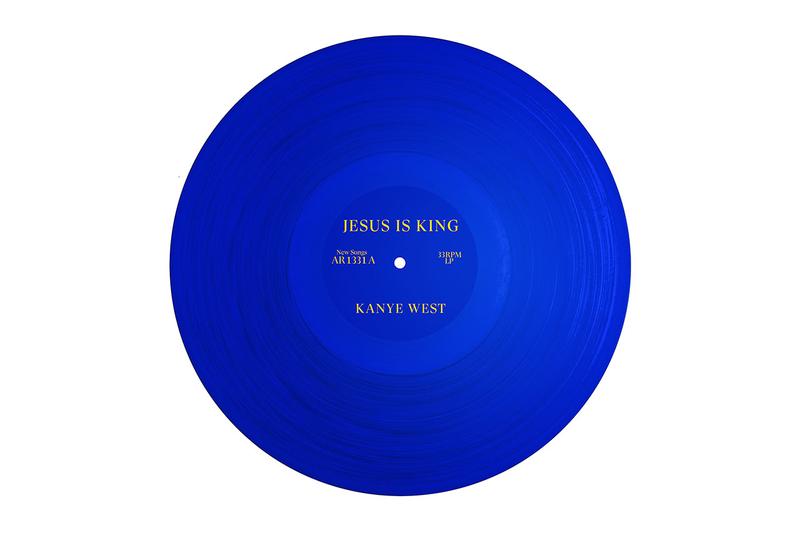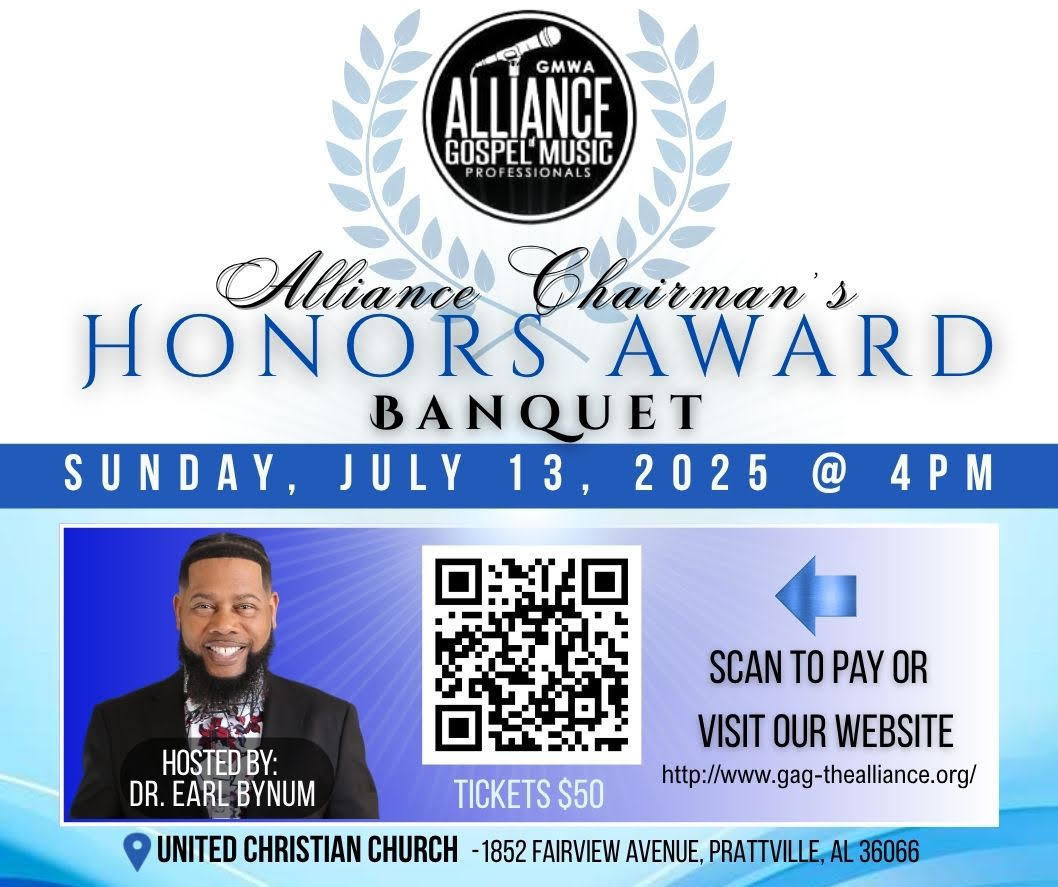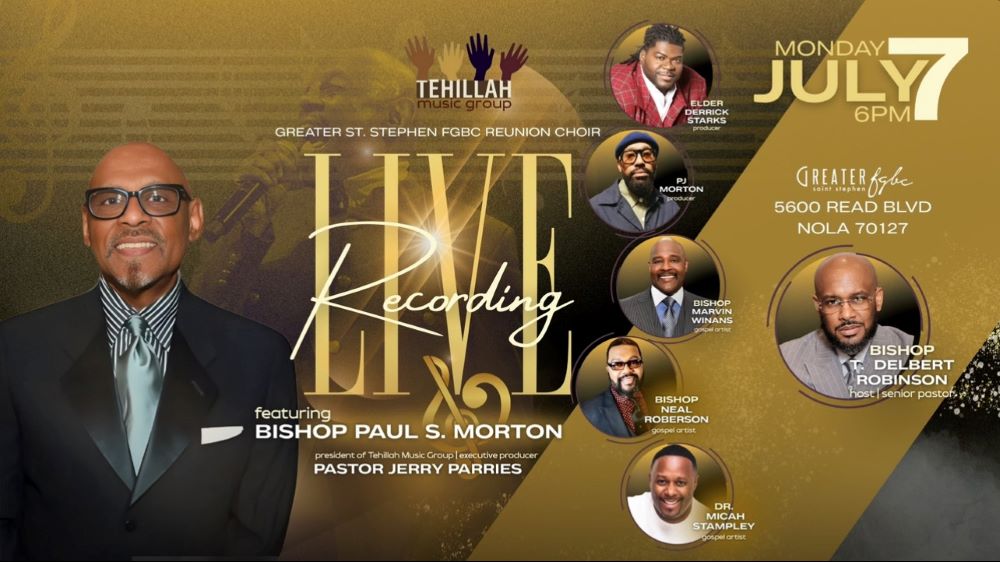 By Bob Marovich
By Bob Marovich
In its first week, Kanye West’s spiritual album Jesus is King made record chart history by topping five charts at once, including the Billboard 200 chart and the Christian and Gospel album charts. The shift in message was a surprising move, even for the enigmatic and politically perplexing West, and it stimulated a range of responses—from cynicism to delight.
But for all its novelty, Jesus is King is not the first time a pop artist has ventured into the realm of religious music. It’s not the first time an artist has left fans wondering whether the change was temporary, perhaps a one-off tribute to a beloved relative, or a permanent parting of ways from popular music.
One of the most dramatic artist conversions occurred on Chicago’s South Side in the early morning hours of a Friday in late 1949. Riding high with jukebox favorites like “Did You Ever Love a Woman” and “I Ain’t Mad at You,” blues shouter Arnold Dwight “Gatemouth” Moore stood on the stage of the Club DeLisa, ready to give the audience its money’s worth. But, the story goes, when he opened his mouth to sing, what came out was not a jump blues but a solemn camp-meeting hymn called “Shine on Me.” Overcome by the spontaneity of his conversion moment, Moore exited the stage, dashed out the Club DeLisa doors, and sprinted out into Chicago’s slushy streets, shouting “I’m Saved!” He became an assistant pastor of a local Spiritual church and made lively gospel records. Moore didn’t dip back into his blues catalog for a quarter-century.
The flamboyant singer-pianist and Rock & Roll Hall of Famer Little Richard ripped up stages and record charts in the 1950s with songs like “Tutti Frutti” and “Good Golly Miss Molly.” But in 1957, at the apex of his career, Richard abruptly switched gears. He enrolled in Bible college and dedicated himself to recording gospel songs and spirituals. The quality and popularity of his religious recordings were hit and miss and, like Moore, he ultimately returned to his musical roots.
Another blues shouter, Sylvester “Duke” Henderson, also gave up secular music after a religious conversion, but he stayed in the service of the Lord. As Brother Henderson, he broadcast gospel music on the radio, opened a religious music store in Los Angeles, established two record labels devoted to the L.A. gospel scene, and became a preacher. He’s responsible for some of the very first recordings of the Grammy-winning Mighty Clouds of Joy.
Although as early as 1971, soul superstar Al Green had been placing at least one religiously-oriented song on his best-selling albums, he started recording gospel music exclusively in 1980. Four years earlier, he opened his own church, the Full Gospel Tabernacle, in Memphis and remains its pastor. Although he, like Little Richard and Gatemouth Moore, returned to recording secular music, he still sings church staples like “Amazing Grace” in his concerts and, of course, in church.
Numerous secular artists with deep religious roots—from Nat “King” Cole and B. B. King to Elvis Presley and Snoop Dogg—have released albums of gospel or spiritual music, perhaps none more successfully than Aretha Franklin. Many consider her 1972 double album Amazing Grace, a collaboration with gospel superstar Reverend James Cleveland and the Southern California Community Choir, her magnum opus. The recent release of the documentary film that chronicled the recording sessions at a Los Angeles church introduced the masterpiece to a new generation. Aretha followed it up in 1987, two years after “Who’s Zoomin’ Who,” with One Lord, One Faith, One Baptism. This time, she recorded in the Detroit church pastored by her father, Reverend C. L. Franklin.
This shifting between pop and gospel is not surprising if you consider it in the context of black music history. According to musician and ethnomusicologist Pearl Williams-Jones, the music enslaved West Africans brought to the New World recognized no distinction between sacred and secular. Like life itself, all music was sacred and all music was secular. And outside of conservatories, African American churches are some of the finest schools of music. Artists who sing in the choir or play an instrument during worship services but choose a different musical path nevertheless absorb the critical lessons offered by the church’s music ministry.
Is it likely Kanye West will stay true to the holy hip hop of Jesus is King? Only time will tell. West may not have much of a choice. He is undoubtedly aware of the sonar-like intuition of gospel music fans. They have an uncanny ability to gaze right into a singer’s soul. If someone is singing out of genuine religious conviction, if the song and its presentation make congregants feel like they have fire shut up in their bones, the response will be powerful and gratifying. If not, the crowd will graciously applaud the singer off the platform. It’s the church version of “Don’t call us, we’ll call you.”
If the lessons of music history teach us anything, West’s personal spirituality notwithstanding, it is that the hip hop star is likely to retain songs of hope and inspiration in his repertory, but the likelihood he will commit to recording religious music permanently is low. Regardless, West has a phenomenal asset in his Sunday Service Choir. It’s a disciplined and skillful ensemble whose adeptness at interpreting classic contemporary gospel choral literature makes the film version of Jesus is King more reverent than, and thematically superior to, the CD. Whatever Kanye West chooses to do, he needs to keep the Sunday Service Choir singing. And that’s the gospel truth.
3 Comments
Leave A Comment
Written by : Bob Marovich
Bob Marovich is a gospel music historian, author, and radio host. Founder of Journal of Gospel Music blog (formally The Black Gospel Blog) and producer of the Gospel Memories Radio Show.












 Visit Today : 658
Visit Today : 658 This Month : 53693
This Month : 53693
I give Kanye kudos for a valiant effort. The production is slick , smooth as silk. Will it convert and save souls whose to say. I don’t think he’s a Musicsl Christian Genius. Nor is he a Kirk Franklin nor Ty Tribilet. Or Smokie Norwood. The album to me is missing that soul stirring feeling it’s just not there. His proclamation if being a ‘Genius” is a turn off for me.When James Cleveland sang the first word of Peace be Still, Master,the the whole church shook, Kirk, the Winas ,Hekezial Walker sing from their soul not from their head.Praise God not yourself.
Thank you, Etta Jean – I love the image of Rev. Cleveland shaking the church rafters with “Master.” He sure did!
Hey Bob…
Great article.
Thanks for including a paragraph on my cousin, the late Bro Duke Henderson. One of the reasons you don’t hear me talk much on my broadcasts is because of something he said when he heard one of my Armed Forces broadcasts from the 60s. He said, “Less chatter, more platter. Let the music be the star, not you.”
I hope Kanye stays true, but history is against it.